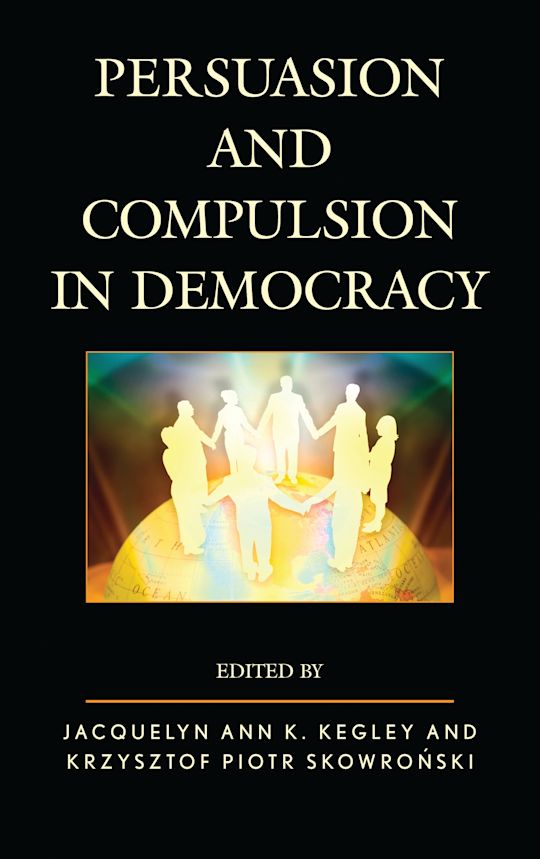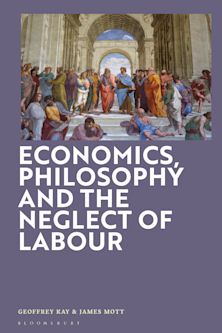- Home
- ACADEMIC
- Philosophy
- Social and Political Philosophy
- Persuasion and Compulsion in Democracy
Persuasion and Compulsion in Democracy
Persuasion and Compulsion in Democracy
You must sign in to add this item to your wishlist. Please sign in or create an account
Description
This collection of essays focuses on the roles that coercion and persuasion should play in contemporary democratic political systems or societies. A number of the authors advocate new approaches to this question, offering various critiques of the dominant classical liberalism views of political justification, freedom, tolerance and the political subject. A major concern is with the conversational character of democracy. Given the problematic and ambiguous status of the many differences present in contemporary society, the authors seek to alert us to the danger, that an emphasis on reasonable consensus will conceal exclusion in practice of some contending positions. The voices of vulnerable peoples can be unconsciously or even deliberately silenced by various institutional processes and operating procedures and a strong media influence can change the tenor of conversations and even lead to deception. To counter these factors, a number of the essays, in differing ways, urge the fostering of local community conversations or democratic agoras so that democratic debate and conversation might maintain the vitality necessary to a strong democratic system.
Table of Contents
Introduction: Re-assessing Compulsion and Persuasion in Democracy via a New Framework
Part I: Public Issues
Chapter 1: Between Rhetoric and Dialectic: On Persuasion and Other Compulsive Habits in Democracy
Chapter 2: Democracy, Persuasion, or Inclusion?: The Sense of a Crisis
Chapter 3: Compulsion and Persuasion in a Democracy of Split Levels
Chapter 4: Hegemony, Social Inquiry, and the Primacy of Practical Reason
Part II: Theoretical Matters
Chapter 5: Keeping Radical Democracy Pragmatic: The Vanishing Subject in Laclau and Mouffe’s Politics of the Real
Chapter 6: A Good Citizen: The Forlorn Hope of Freedom and Rational persuasion Beyond Compulsion – A Pragmatist View
Chapter 7: Pragmatist Philosophy and Persuasive Discourse: Dewey and Rorty on the Role of Non-Logical Changes in Belief
Chapter 8: Constructivist Problems, Realist Solutions
Part III: Actions
Chapter 9: A Pragmatist Communicative Ethics for Politics and Everyday Life: Persuasion and Compulsion in Democracy
Chapter 10: Persuasion and Compulsion in Radical Democracy: Some Insights from John Dewey
Chapter 11: Aesthetic Persuasion and Political Compulsion: Literary Philosophy in Light of Richard Rorty’s Ideas of Democratic Liberalism and Cultural Politics
Chapter 12: The Global Learning Chain and Baltimore City’s Filipino Teachers: Persuasion and Compulsion in the Classroom
Chapter 13: Persuasion and Compulsion in Democratic Urban Planning
Index
About the Contributors
Product details
| Published | Jan 25 2013 |
|---|---|
| Format | Ebook (PDF) |
| Edition | 1st |
| Extent | 282 |
| ISBN | 9798216325185 |
| Imprint | Lexington Books |
| Publisher | Bloomsbury Publishing |
About the contributors
Reviews
-
Persuasion and Compulsion in Democracy is a thought-provoking collection of chapters on current democratic theory. The authors start with a recognition of familiar critiques of liberal and deliberative democracy theories, and draw upon pragmatist frameworks to explore themes of agonistic discourse, coercion, deception, hegemony, and the radical situatedness of persons and political causes. This is an exciting resource for those who would seriously consider the forms and processes of democracy in the twenty-first century.
Kelly A. Parker, Grand Valley State University



































